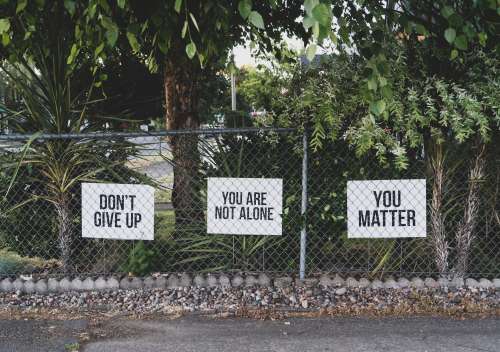In the midst of COVID-19’s major impact on our lives and communities, many nonprofits are considering how this will affect maintaining and applying for grants, often essential for continued operations. We’ve put together a list of four things that can help you and your organization through this difficult time.
1. Maintain Communications and Relationships with Funders
Yes, everyone is busy, nervous, and figuring out what their organization will do to move forward in response to COVID-19. All the more reason for you to be a part of that conversation with funders. Talk to them about what your organization is doing, why you continue to be relevant and important, and how you can partner with them to have a major impact that aligns with their priorities. Grantmakers have money to make an impact in the community, but they don’t provide actual services so can only have their desired impact by working with you, the grantees.
Current Funders
If you have individual or major donors, consider calling them to have a conversation. Check in on how they are doing right now. (They’re also humans with lives and families!) Let them know how your organization is handling the crisis. Have you closed down but continued working from home? Have you moved events to online platforms? You can mention ideas you are working on to adapt to the evolving situation and let the funder know if you would like to file for an extension or budget revision. Keep it brief – You can simply check in, provide an update, make sure you’re staying on their radar, and get a sense for whether they’d like to continue the conversation over the next few weeks.
New Funders
You can and should still be reaching out to new funders. As always, research their priorities ahead of time, especially if they are shifting in response to COVID-19. Be prepared with talking points that align with the funder’s priorities. Again, it is through relationships with great organizations that funders are able to have an impact. Hearing from you might provide them with an opportunity to fulfill their own goals and mission.
Many grantmakers are shifting to supporting frontlines, the direct needs of communities, and short term issues and relief. If that’s just not you, don’t try to convince funders it is. But stay connected occasionally to let them know what you’re doing and that you will be available as the conversation shifts toward rebuilding and moving forward.
2. Stay Informed about Resources and Emerging Opportunities
Funding opportunities are becoming available specifically related to COVID-19 emergency relief and longer term recovery. Many grants websites have pages dedicated to compiling COVID-19 funding opportunities and other supports for nonprofits. Here are a few to explore:
- Grantspace: Emergency Financial Resources
- Grantspace: Funds for Coronavirus Relief
- Grant Station: COVID-19 Related Funding
- The Chronicle of Philanthropy: Responding to the Coronavirus Outbreak: Resources to Help Nonprofits
- Google Alerts: Add new keywords including “stimulus and nonprofits,” “COVID-19 grants,” and “coronavirus resources” to your typical keyword searches
- Charity How To: Nonprofit professional development & education, including free or low cost webinars
It can be overwhelming to look through all the resources out there. We recommend choosing one or two sources that you like, whether from this list or elsewhere, and making those your go-to sources for information and updates.
3. Know Your Value (Looking at You, Arts and Culture Organizations)
Don’t write yourself off because you aren’t a healthcare, direct relief, or scientific organization. Many nonprofits, especially arts and culture organizations, are providing significant relief and support right now, including free online offerings, concerts, and classes. The mental health support, joy, sense of normalcy, connection to others, and opportunities to express emotions are immeasurably valuable during difficult times. And it will be the arts that build our community back up and bring us all together moving forward.
At the 2012 National Arts Policy Roundtable Robert Redford was quoted as saying, “The country needs to be healed—it’s not going to be healed from the top, politically. How are we going to heal? Art is the healing force.” This is as true now as it was then. Consider how you frame your own work and your immense value in a time of crisis and a time of healing.
4. Take Care of Yourself and Your Team
Working as a team is especially important right now as we strive for a sense of community, control, and continued progress. Stay connected with your team while working remotely, even team members who are not directly involved in applying for grants, as colleagues can share what they are seeing and experiencing. Staying informed about what each person is working on will keep ideas flowing and ensure resources or ideas get passed along to someone who can use them.
We can’t say enough about looking out for your mental health, stress levels, and wellbeing at this time. Celebrate every little success with your team and take time to check in with each other.
Thank you from Carriage House
We want to thank the community for coming together, supporting each other, and supporting the arts, small businesses, and nonprofits, which bring so much life to our city and region. Be well, stay healthy, stay connected (from a distance!), and know that we are here with you for help and support as you navigate this difficult time.





